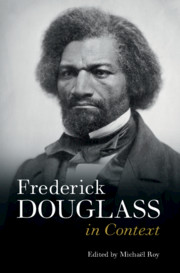Refine search
Actions for selected content:
7 results
Chapter 5 - Physis on the Battlefield
-
- Book:
- Herodotus and the Presocratics
- Published online:
- 07 March 2024
- Print publication:
- 14 March 2024, pp 141-166
-
- Chapter
-
- You have access
- Open access
- HTML
- Export citation
Chapter 4 - History peri physeos
-
- Book:
- Herodotus and the Presocratics
- Published online:
- 07 March 2024
- Print publication:
- 14 March 2024, pp 117-140
-
- Chapter
-
- You have access
- Open access
- HTML
- Export citation
The Role of Location in the Spread of SARS-CoV-2: Examination of Cases and Exposed Contacts in South Texas, Using Social Network Analysis
-
- Journal:
- Disaster Medicine and Public Health Preparedness / Volume 17 / 2023
- Published online by Cambridge University Press:
- 23 October 2023, e516
-
- Article
- Export citation
4 - Venues
- from Part I - Governance
-
-
- Book:
- A Critical Assessment of the Intergovernmental Panel on Climate Change
- Published online:
- 08 December 2022
- Print publication:
- 22 December 2022, pp 27-38
-
- Chapter
-
- You have access
- Open access
- HTML
- Export citation

Frederick Douglass in Context
-
- Published online:
- 16 June 2021
- Print publication:
- 08 July 2021
1 - The Ecological Niche
-
- Book:
- The Philosophy of Ecology
- Published online:
- 28 May 2021
- Print publication:
- 10 June 2021, pp 14-37
-
- Chapter
- Export citation
Part XXII - Production History
-
-
- Book:
- The Cambridge Guide to the Worlds of Shakespeare
- Published online:
- 17 August 2019
- Print publication:
- 21 January 2016, pp 1545-1610
-
- Chapter
- Export citation
